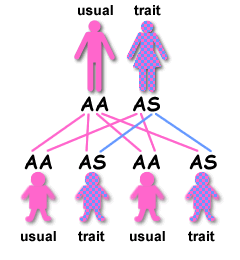
Marriage is a union that encompasses various facets, including love, commitment, and shared aspirations. However, beyond these emotional elements, practical considerations such as health compatibility, especially concerning sickle cell genotype, play a pivotal role in shaping the dynamics and decisions within a relationship.
Sickle cell disease (SCD) is a genetic disorder characterized by abnormal hemoglobin, leading to distorted red blood cells. This condition manifests differently based on an individual’s genotype. The genotypes associated with sickle cell anemia are SS (homozygous), AS (heterozygous), and AC, SC, and others (compound heterozygous). Understanding the implications of these genotypes is crucial when contemplating marriage or starting a family, as it significantly impacts the health of future offspring.
In many cultures, the societal and familial pressure to carry on family lineage or adhere to specific cultural norms can overshadow the potential risks associated with sickle cell genotypes. Consequently, individuals may enter into marriages without considering the genetic implications, leading to increased chances of bearing children with SCD.
The marriage between individuals with AS or SS genotypes requires careful consideration. In the case of two carriers (AS genotype), there is a 25% chance of conceiving a child with sickle cell disease (SS genotype), a 50% chance of having a child who is also a carrier (AS genotype), and a 25% chance of having a child with neither sickle cell disease nor carrier status (AA genotype). This statistical probability highlights the need for awareness and informed decision-making within such relationships.
Couples contemplating marriage, especially when both partners carry the sickle cell trait, must be well-informed about the potential risks and challenges. It becomes imperative to discuss the implications with healthcare professionals, considering options like genetic counseling and prenatal testing to make informed choices about family planning.
Moreover, societal attitudes and stigmas surrounding sickle cell disease can add emotional and psychological burdens to couples dealing with these concerns. Misconceptions and lack of awareness often lead to discrimination and isolation, exacerbating the challenges faced by individuals and families affected by sickle cell disorders.
Education and awareness campaigns play a crucial role in fostering understanding and acceptance within communities. By promoting dialogue, providing accurate information, and offering support networks, societies can create an environment conducive to informed decision-making and compassionate understanding for couples navigating the complexities of sickle cell genotypes in marriage.
In conclusion, while love and companionship are essential elements in marriage, the consideration of genetic compatibility, particularly regarding sickle cell genotype, holds significant importance. Open communication, informed decision-making, and access to resources such as genetic counseling are vital for couples to navigate this aspect of their relationship responsibly. Additionally, societal attitudes need to evolve to create a supportive environment that acknowledges and assists individuals and families affected by sickle cell disorders, fostering inclusivity and understanding within communities.
 GhArticles.com Every News in Detail
GhArticles.com Every News in Detail



